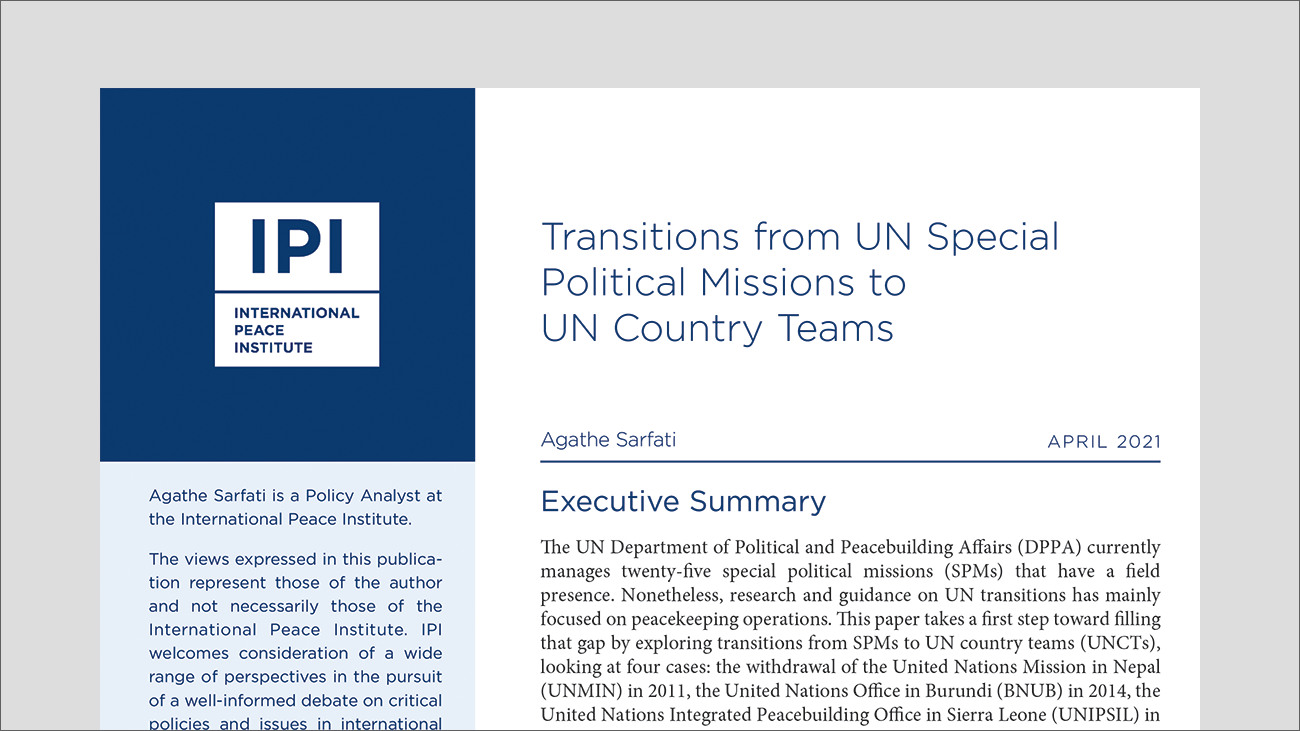
The UN Department of Political and Peacebuilding Affairs (DPPA) currently manages twenty-five special political missions (SPMs) that have a field presence. Nonetheless, research and guidance on UN transitions has mainly focused on peacekeeping operations. This paper takes a first step toward filling that gap by exploring transitions from SPMs to UN country teams (UNCTs).
Focusing on the programmatic and political aspects of transitions, this paper explores the particular challenges of transitioning from an SPM to a UNCT by studying the closure of four missions: the United Nations Mission in Nepal (UNMIN) in 2011, the United Nations Office in Burundi (BNUB) in 2014, the United Nations Integrated Peacebuilding Office in Sierra Leone (UNIPSIL) in 2014, and the United Nations Integrated Peacebuilding Office in Guinea-Bissau (UNIOGBIS) in 2020. After presenting the main characteristics of SPMs, it discusses some of the challenges and characteristics of SPM transitions based on the four case studies.
These four case studies show that the drawdown of special political missions with a field presence shares several features with the drawdown of peacekeeping missions, but some aspects are specific to SPMs. In the coming years, the UN will need to develop a more comprehensive picture of the key elements to take into consideration during SPMs’ lifecycles and transitions, as well as specific guidance on the transition of SPMs. This could help the UN deliver a “continuum of responses and smoother transitions” while supporting national priorities.







